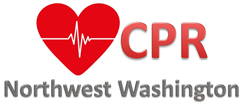Feeling sore after training is actually called, Delayed Onset Muscle Soreness or DOMS. But this isn’t necessarily bad. Despite what you’ve heard at the health club or from a coach, the culprit is not lactic acid. While Lactic acid build-up has been blamed for prolonged muscle fatigue and discomfort; this idea is false.
So, what is making you sore the next day is called “Microtrauma” to the muscle fibers—localized, minor damage to the muscle fiber membranes and contractile elements, (Actin and Myosin Fibers).
Lactic acid is produced during intense levels of exercise (generally at a greater effort than you are used to) which are called Anaerobic Activities, (which means without oxygen). When the oxygen demands of the muscle fibers increase beyond what the blood is able to deliver to muscles, the activity becomes Anaerobic. Lactic acid is simply a byproduct of this Anaerobic process, one which fatigues your muscles. Because it is an acid it causes your muscles to experience that burning sensation, but it does not make them sore the next day.
But lactic acid is completely washed out of the muscles within 60 seconds to 60 minutes after you finish the activity. Since muscle soreness does not show up until 24 to 36 hours later, Lactic Acid isn’t what made you sore. In fact, Lactic Acid is good because it can be re-cycled into fuel for more activity.
Over the 24 hours, the damaged muscle becomes swollen and sore. Chemical irritants are released from the damaged muscles and can irritate pain receptors. In addition to the injured fibers, there is increased blood flow from increased activity to the muscle, causing a swelling of the muscle tissues, which causes enough pressure to stimulate pain receptors. Instead of having free-moving muscle fibers the next morning, you have fibers that are fatigued, have microscopic tears and are swollen.
So this “microtrauma” is really the culprit of muscle soreness, (unless you have an injury). The nerve supply to the muscles perceive this abnormal state and send messages of pain to your brain as soon as you move them the next morning; “Ouch, I’m sore!”
The cure for muscle soreness is relatively simple: If you gradually increase the strength and endurance of your muscles and you stretch and warm up properly before the activity you will be engaging in, they will not get as sore.





